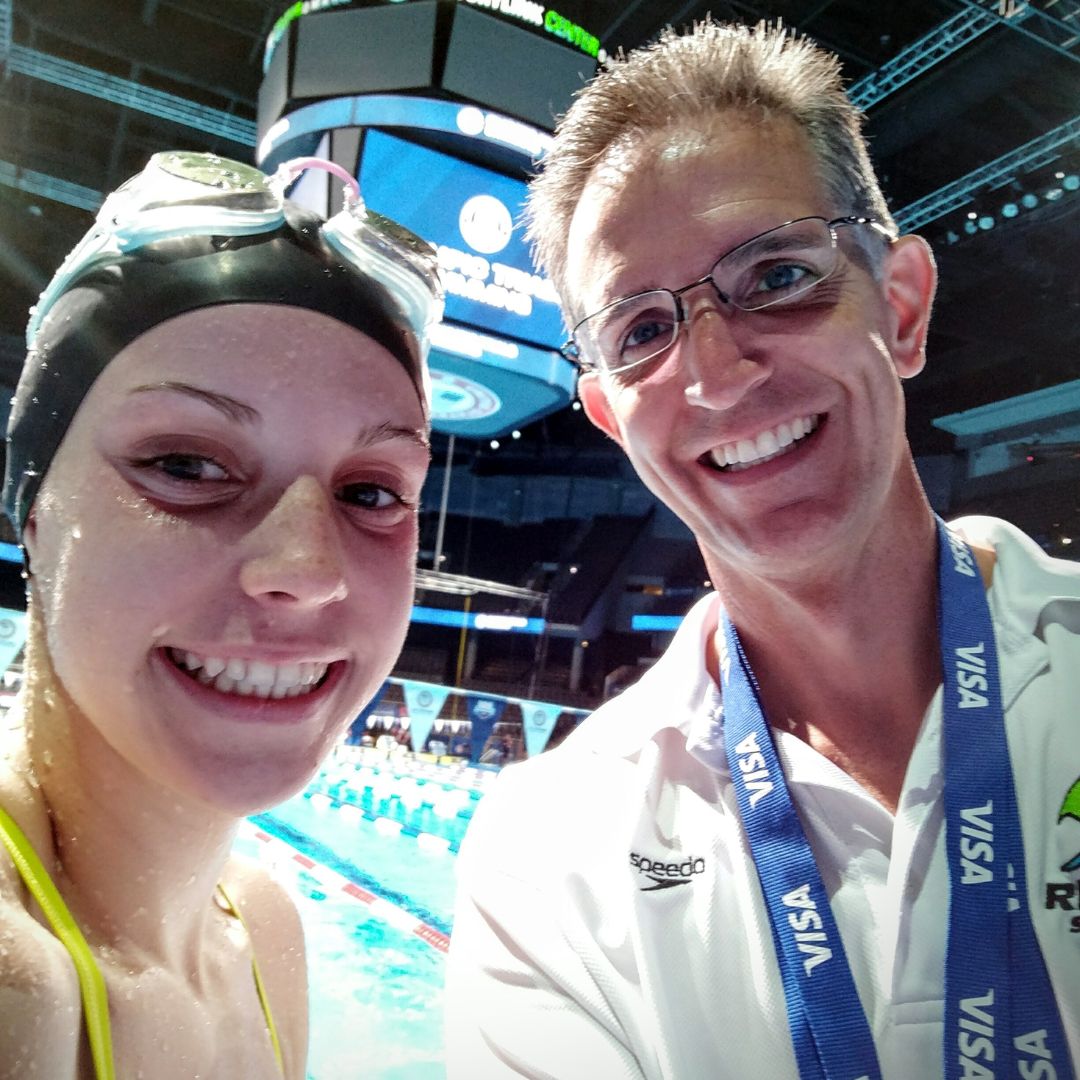By Foss Swim School
Paul Smith and his wife don’t know exactly where their daughter Regan got her swimming ability from. “I’m comfortable in a hotel pool,” he said. “Swimming for me as a parent was something where I’d say, ‘I want you to be safe.’” It’s safe then to say Regan’s three Olympic medals, numerous international championship medals and multiple world record times were not predestined.
The Smith’s enrolled their daughters in learn-to-swim classes, including at Foss Swim School, where both girls took to the water comfortably. “At age five, we wouldn’t say there was anything extraordinary,” Smith noted. “But it all changed a little bit in that video, the classic one we took at FOSS.”
The video, taken at a Foss Fun Meet that lets kids get a taste of racing, shows Regan dominating even in difficult strokes. She relished competition. “We realized this might be something she enjoys doing.”
Deciding to go further with swimming
Soon after, both Regan and her sister were enrolled in club swimming, and Regan continued to excel. In her first meets, she had championship-quality times in multiple events, and other swim parents started commenting to the Smith’s that Regan had something special. “At first we were amused,” Smith said. “But that was where we thought, ‘she’s pretty good.’”
Even as Regan invested more in swimming, Paul still harbored some doubts, not because of her ability, but because soon there would be other things competing for Regan’s time and attention. “That attitude allowed us to keep ourselves in check” he said. “But it was obvious she was good, and she loved it. That’s the most important thing.”
Six insights for swim parents at any level
Fast forward many years, and Paul Smith now finds himself talking with the parents of other up-and-coming swimmers about what to expect and things to focus on. While most swimmers will never compete at an international level, his advice is good even for parents of casual swimmers – and applies to young athletes of all persuasions.
- Family needs to be committed, too: Swimming is a sport that takes a lot of time to master, and competitive swimming will have long, frequent practices – and later, meets that may require travel. Make sure you’re on board as well or can make accommodations – if it doesn’t work for the family, it won’t work for the swimmer.
- Don’t live vicariously: It’s a common concern in youth sports – parents who want their kids to compete and succeed to bolster the parents’ sense of worth. You can be proud, but it has to start with the swimmer’s needs and wants. Don’t be the parent pushing a six-year-old to give you another lap when they’re clearly tired.
- Give them a break: Given the intensity of competitive swimming, it’s important to listen to your young athlete and give them what they need, physically and emotionally. If they need a day off, permit it. Feeling loved, listened to and cared for is important to a young swimmer’s development as a person.
- Focus on raising good humans first: Even for the world’s best swimmers, most of life will be spent outside the pool. Raise them to be good, compassionate people. Teach sportsmanship and let them pursue other interests. They will find their own balance, and you want to be a positive part of that process.
- Respect the coaches and staff: As competition rises, so can emotions. Recognizing the contributions of coaches and staff is important. It doesn’t mean you can’t advocate for your swimmer, but you need to do so respectfully, calmly and privately, and if you want to be a part of the team, you must respect team decisions.
- Set clear goals and be realistic: Keep lines of communication open with your swimmer and with coaches. Do they like swimming, but don’t love it? Are they happy on a high school team, or want to test themselves against a broader field? Are they looking for a scholarship, or a fun group to swim with? Know what they want and aim for that.
Balancing the parental role with the coach/advocate
Like many parents, the Smiths came to have a role in Regan’s athletic life as well as being her parents. Paul became a program director for Regan’s swim team and helped coach her as well. So, it was important to know when to be the parent and when to look out for her swimming career.
“When you have a special kind of athlete, it’s very easy to put them on a pedestal,” he said. “A lot of parents want to push them – they have a 9-year-old and want them up with the 12-year-olds because they can beat them. I’ve made that mistake. It can be difficult from a social perspective. Sometimes a parent has to be smarter.”
Whether vying for the Olympics or just wanting to horse around in the pool, the goal is the same, he said: “We’re not trying to create a good swimmer. We’re trying to create a good person who is a good swimmer.”
